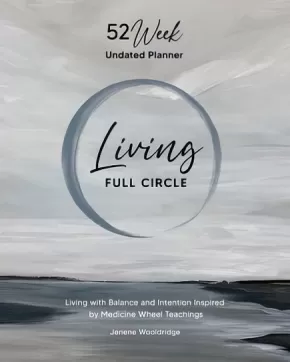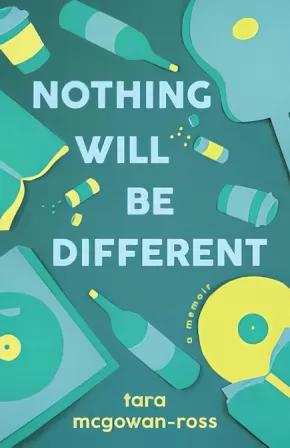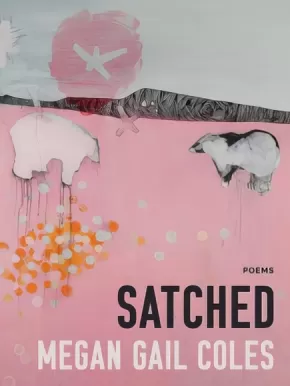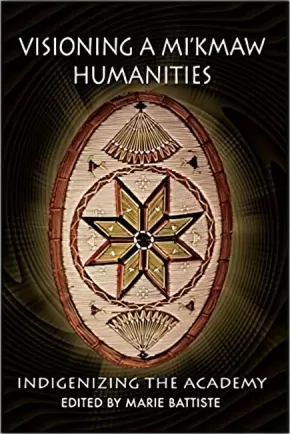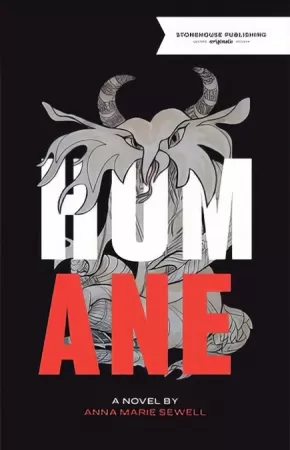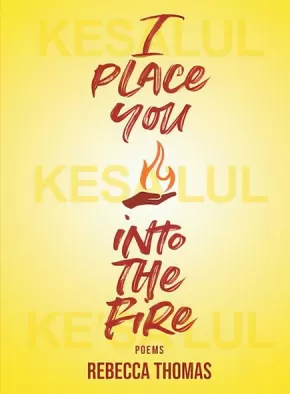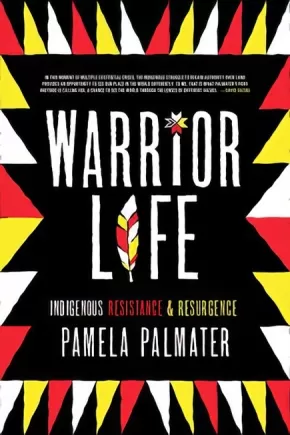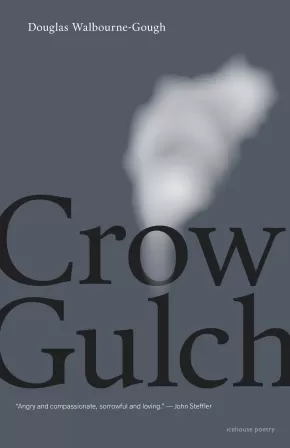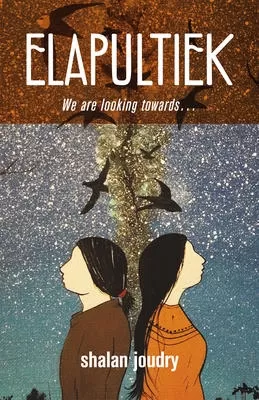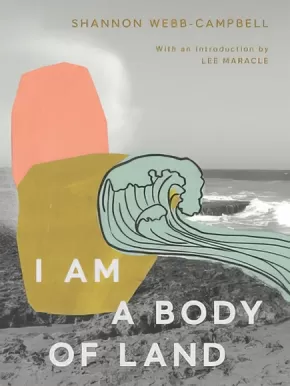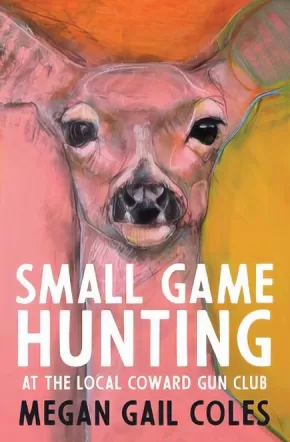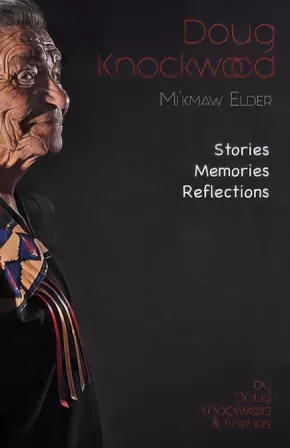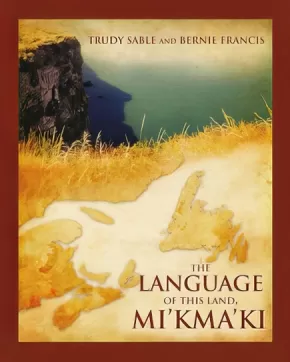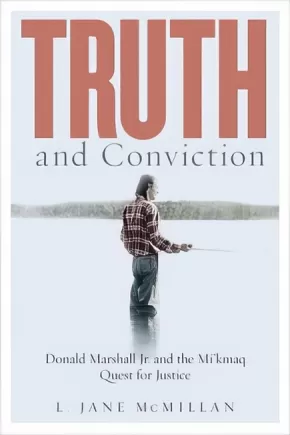Mi'kmaq (Mi'gmaq)
Synopsis:
PLAN YOUR YEAR WITH THE LIVING FULL CIRCLE PLANNER. In this planner, author Jenene Wooldridge shares her insights and personal experience on how she incorporates teachings of the medicine wheel around balance and living with purpose to live her life and achieve success. She shares the importance of contemplation, preparation, goals and how they connect to Living Full Circle.
Discover what works for you, develop healthy habits and create goals with intention to live your best. With twelve themed months and 52 weeks of guided reflection, this planner provides a foundation for your ideal life. Track your progress and learn from its useful tips and inspiration as you grow.
• Created by you, for you!
• Delivers clarity for daily living
• Guided reflection to increase self-awareness and productivity
• Goal setting, habit tracking and intentional living
Educator Information
52 Week Undated Planner
Additional Information
160 pages | 8.00" x 10.00"
Synopsis:
A neurotic party girl's coming-of-age memoir about learning to live before getting ready to die.
Tara has it pretty good: a nice job, a writing career, a forgiving boyfriend. She should be happy. Yet Tara can’t stay sober. She’s terrible at monogamy. Even her psychiatrist grows sick of her and stops returning her calls. She spends most of her time putting out social fires, barely pulling things off, and feeling sick and tired.
Then, in the autumn following her twenty-seventh birthday, an abnormal lump discovered in her left breast serves as the catalyst for a journey of rigorous self-questioning. Waiting on a diagnosis, she begins an intellectual assessment of her life, desperate to justify a short existence full of dumb choices. Armed with her philosophy degree and angry determination, she attacks each issue in her life as the days creep by and winds up writing a searingly honest memoir about learning to live before getting ready to die.
Reviews
"This delightful book, appropriately enough, works like your favourite mixtape. It's got everything you want, and somehow it all fits. The arrangement is unexpected but, in retrospect, seems obviously right. Here is softness and pain, intimacy and revulsion, flourishing and sickness. And McGowan-Ross just sounds so good." — Sasha Chapin, author of All The Wrong Moves
"Tara McGowan-Ross is an unpretentious poet and philosopher weaving together meaning from the pain, grief, heartache, as well as simple joy of being alive. Nothing Will Be Different is a meditation on amor fati: the love of fate, the love of what is. By being with all of it: trauma, profound loss, the reality of death, addiction, precarity, the gig economy, hard work, love both dizzying and secure, sex, and insatiable desire, Tara shows us that transformation comes not through a battle against what is, but from the willingness to be changed by it." — Clementine Morrigan, author of Love Without Emergency
Additional Information
240 pages | 5.50" x 8.50"
Synopsis:
Named after a local word meaning “soaked through” or “weighed down,” Scotiabank Giller Prize finalist Megan Gail Coles’s debut poetry collection, Satched, is a vivid portrait of intergenerational trauma, ecological grief, and late-stage capitalism from the perspective of a woman of rural-remote, Northern, working class, mixed ancestry.
Honest, penetrating, and often darkly comic, these poems explore the extraordinary will it requires to stay alive in the face of economic precariousness, growing inequality, and prevailing dissatisfaction. With a fierce dedication to place, the collection explores the conflict inherent to individualistic priorities and collective needs present in a hyper-commodified Newfoundland and Labrador. Satched demands compassionate advocacy for all as it resolutely strives for clarity and acceptance while celebrating the momentary glimpses of joy in the path toward shared values and resilience.
Reviews
“This collection trills of the [Newfoundland] region and its distinct speech … Coles creates an intimacy in Satched through her urban maritime lens and straightforward style.” — Quill & Quire
“Reading Satched is like drinking chilled wine with an old friend on a hot night, commiserating with love, gratitude, and mutual affection. It’s opening a second bottle, letting the kids fall asleep watching movies, and getting out the hidden cigarettes to really get into it. It’s a fist in the air before it’s aimed at an appropriate eyeball. It’s an exceptional accomplishment full of lyrical strength and poetic endurance.” — Katherena Vermette, author of river woman
“Are you ready for poems that pierce straight to the bone? Megan Gail Coles’s Satched is a razor edge of fierce truth, grim humour, and unalloyed beauty. With sharp-eyed clarity and fearless candour, Coles slices open the veils of capitalism and colonization to reveal a landscape marked by poverty and resilience, violence, and hope. This is Newfoundland and Labrador seen through the eyes of unconditional love and furious rage. The political, the personal, and the poetic interweave seamlessly in this debut collection, adding another genre to Coles’s already impressive repertoire. Satched is the kind of book we need right now, the kind that confronts the real world head-on while also teaching us how to live in it.” — Kai Cheng Thom, author of a place called No Homeland
“Satched is an acerbic, bold, and wise debut that susses out the subtle and sinister ways men infringe on women’s mental and physical spaces, the horrors of the climate crisis, and the pitfalls of economic precarity. With technical mastery and an immediately infectious tone, Coles inhabits the voices of Atlantic Canada, unearths the ways grief inhabits a place, and interrogates prevailing notions of resiliency. Coles intimates both how ‘our minds are poisoned against ourselves’ and the ways in which kinship offers a path to forge through the audaciousness of capital and insidiousness of colonialism. Reading Satched is like talking to your smartest, funniest friend, who wryly declares, ‘there is nothing and no one standing in your way, / except capitalism and global pandemics.’” — Cassidy McFadzean, author of Drolleries
“These poems tumble into me with a rage and beauty that is oceanic. I am satched to the core. Megan Gail Coles writes poems that ask us to reconsider historical and contemporary attitudes toward poverty, race, gender, and the environment, engaging her reader in ‘this present rowing over the past / to make up the future.’ Because while these poems speak deeply to intergenerational trauma, solastalgia, and the systemic ills of capitalism hidden in plain sight, they are forward-looking at heart. Satched puts forth that despite (or perhaps because of) our human frailties, we can begin again. These poems demonstrate that repair is possible, even from a rusty scaffold, if we are willing to reach beyond ourselves.” — Clea Roberts, author of Auguries
Additional Information
112 pages | 6.00" x 8.00" | Paperback
Synopsis:
Since the Renaissance, liberal education has as its core tradition a Eurocentric multidisciplinary humanism — the study of literature, art, philosophy and history — grounded in ancient Greek and Latin texts.
In what may be termed cognitive imperialism, the academy has largely ignored Aboriginal perspectives of humanity. In this volume, Mi'kmaw and non-Mi'kmaw scholars, teachers and educators posit an interdisciplinary approach to explicate and animate a Mi'kmaw Humanities.
Drawing on the metaphor of a basket as a multilayered metaphor for engaging postsecondary institutions, these essays reveal historical, educational, legal, philosophical, visual and economic frameworks to develop a knowledge protocol that can direct, transform and enrich conventional Humanities within the complex dynamics of territory, energy, stewardship, alterity and consciousness.
Additional Information
300 pages | 6.00" x 9.00" | Paperback
Synopsis:
Who steals a dog from a shelter after receiving a dream message from their grandmother?
Hazel Lesage never expected it to be her. Then again, she didn't plan on becoming an unlicensed PI, helping the 'throwaway people.' However much has changed in Amiskwaciy, the problem of poor Indigenous women and girls being expendable hasn't. Nobody else is going to help the Augusts find out who killed their daughter Nell; so Hazel takes the case. And then she takes the dog.
What follows will force Hazel and her family to confront the question of what it means to be Human, and what it matters to be Humane.
Additional Information
274 pages | 5.00" x 7.75"
Synopsis:
The incisive and vital first poetry collection from Mi'kmaw spoken-word poet and former poet laureate of Kjipuktuk (Halifax), Nova Scotia.
We remember tomorrow and a thousand years ago.
From eel weirs to the buffalo.
We remember petroglyphs and Instagram photos.
See, we remember our history,
Without statues, money, or pictures of the Queen.
In Mi'kmaw, three similarly shaped words have drastically different meanings: kesalul means "I love you"; kesa'lul means "I hurt you"; and ke'sa'lul means "I put you into the fire." In spoken-word artist and critically acclaimed author (I'm Finding My Talk) Rebecca Thomas's first poetry collection, readers will feel Thomas's deep love, pain, and frustration as she holds us all to task, along the way mourning the loss of her childhood magic, exploring the realities of growing up off reserve, and offering up a new Creation Story for Canada.
Diverse and probing, I place you into the fire is at once a meditation on navigating life and love as a second-generation Residential School survivor, a lesson in unlearning, and a rallying cry for Indigenous justice, empathy, and equality. A searing collection that embodies the vitality and ferocity of spoken-word poetry.
Additional Information
128 pages | 5.50" x 7.50"
Synopsis:
In a moment where unlawful pipelines are built on Indigenous territories, the RCMP make illegal arrests of land defenders on unceded lands, and anti-Indigenous racism permeates on social media; the government lie that is reconciliation is exposed. Renowned lawyer, author, speaker and activist, Pamela Palmater returns to wade through media headlines and government propaganda and get to heart of key issues lost in the noise.
Warrior Life: Indigenous Resistance and Resurgence is the second collection of writings by Palmater. In keeping with her previous works, numerous op-eds, media commentaries, YouTube channel videos and podcasts, Palmater’s work is fiercely anti-colonial, anti-racist, and more crucial than ever before.
Palmater addresses a range of Indigenous issues — empty political promises, ongoing racism, sexualized genocide, government lawlessness, and the lie that is reconciliation — and makes the complex political and legal implications accessible to the public.
From one of the most important, inspiring and fearless voices in Indigenous rights, decolonization, Canadian politics, social justice, earth justice and beyond, Warrior Life is an unflinching critique of the colonial project that is Canada and a rallying cry for Indigenous peoples and allies alike to forge a path toward a decolonial future through resistance and resurgence.
Reviews
“In this moment of multiple existential crises from climate change to species extinction, ocean degradation, toxic pollution and so on, the Indigenous struggle to regain authority over land provides an opportunity to see our place in the world differently. To me, that is what Palmater’s fiery rhetoric is calling for, a chance to see the world through the lenses of different values.” — David Suzuki
“As governments try to pull the wool over the public eye by suggesting contemporary colonial acts are best for Indigenous peoples, Palmater helps us see the wrongdoing so we can become informed and be respectful change allies. Read this book to see the many faces of colonialism and to learn how truth, justice, and respect can defeat it.” — Cindy Blackstock, First Nations Child and Family Caring Society of Canada
Educator Information
Table of Contents
Foreword by Niigaanwewidam James Sinclair
Harper’s Gone, Now It’s Time to Look Within
The Worst Thing That Could Happen Is A First Nations Minister of Indian Affairs
Will We See Real Nation to Nation Respect With Trudeau?
Evidence of Good Faith Lacking in Trudeau’s Indigenous Agenda
Why Is Trudeau Government Opposing Charter Equality for Indigenous Women?
PM Trudeau’s Nation to Nation Relationship Disappeared with Empty Budget Promises
Trudeau’s Dance of Deception on Indigenous Rights
Trudeau’s Forked Tongue Reconciliation At UN
Indigenous Issues Disappear Slowly from Election 2019
Canada’s Ongoing Racial Discrimination Against Indigenous Women and Children Discussed at United Nations
Lethal Impact of Racism on Indigenous Health
Overincarceration Of Indigenous Peoples Nothing Short of Genocide
First Nations Water Crisis Problems A Crisis of Canada’s Own Making
Saskatchewan: The Land of The Living Skies and Lethal Racism
Justice for Our Stolen Children Camp
How Canada Turned A Blind Eye to The Suicide Crises In First Nations
Don’t Forget the Racist Canadians Behind the Racist Systems
The Ongoing Legacies of Canadian Genocide
Sexualized Genocide
Corporate Conquistadors Rape Indigenous Lands and Bodies
Bill S-3 Amendments to The Indian Act and the Never-Ending Battle for Equality for Indigenous Women
What You Need to Know About Sharon McIvor’s UN Victory on Indian Status
The People Left Behind by Trudeau’s Promised Nation to Nation Relationship (Co-Authored with Sharon McIvor)
Federal Budget 2019 Indigenous Women & Children Left Behind Again
Public Inquiry Needed to Address Sexualized Violence in Policing and Corrections
Why Canada Should Stand Trial for Tina Fontaine’s Murder
Justice System Still Not Protecting Indigenous Women and Girls
Missing and Murdered: Canada’s Genocide Cover-Up
Transitional Justice Plan Needed to End Genocide in Canada
Bill C-92’s Indigenous Child Welfare Act More Pan-Indigenous Legislation That Risks Continuing the Status Quo
Bill C-91 An Act Respecting Indigenous Languages: More Hollow Reconciliation
Canada’s Criminalization of The Indigenous Tobacco Trade
Cannabis Legalization Ignores First Nations
NAFTA 2.0 – Time to Get It Right or Kill It
Bill C-51, Anti-Terrorism Act, Testimony and Questions at Senate Committee on Public Safety and National Security
RCMP Invasion of Wet’suwet’en Nation Territory Breaches Canada’s Rule of Law
Killer Whales, Trans Mountain Pipeline and The Public Interest (Part 1)
It’s Up to Indigenous Environmental Groups to Protect the Public Interest (Part 2)
Clearing the lands has always been at the heart of Canada’s Indian Policy
The blockades no one talks about devastate Indigenous economies
The Liberals Plans for Indigenous Reconciliation are Just Beads and Trinkets
Abolishing the Indian Act Means Eliminating First Nations’ Rights
The Source of Our Power Has Always Been in Our Peoples – Not Voting in Federal Elections
Indigenous Rights are Not Conditional on Public Opinion
Reconciliation with Indigenous Peoples in Universities and Colleges
True Test of Reconciliation: Respect the Indigenous Right to Say No
The Indigenous Right to Say No
A Modern Treaty to Save Our Peoples and the Planet
Social Conflict Inevitable in Decolonization Battle
Indigenous Women Warriors are the Heart of Indigenous Resistance
Wet’suwet’en: a wake-up call for Canada
References
Index
Additional Information
272 pages | 6.00" x 9.00"
Synopsis:
From the author: I cannot let the story of Crow Gulch — the story of my family and, subsequently, my own story — go untold. This book is my attempt to resurrect dialogue and story, to honour who and where I come from, to remind Corner Brook of the glaring omission in its social history.
"These deeply engaging poems — courageous, shrewdly observed, disillusioned — give sharp, prsonal expression to the harsh-beautiful landscape of western Newfoundland, and the human community precariously, stubbornly rooted there." — John Steffler
In his debut poetry collection, Douglas Walbourne-Gough reflects on the legacy of a community that sat on the shore of the Bay of Islands, less than two kilometres west of downtown Corner Brook.
Crow Gulch began as a temporary shack town to house migrant workers in the 1920s during the construction of the pulp and paper mill. After the mill was complete, some of the residents, many of Indigenous ancestry, settled there permanently — including the poet's great-grandmother Amelia Campbell and her daughter, Ella — and those the locals called the "jackytars," a derogatory epithet used to describe someone of mixed French and Mi'kmaq descent. Many remained there until the late 1970s, when the settlement was forcibly abandoned and largely forgotten.
Walbourne-Gough lyrically sifts through archival memory and family accounts, resurrecting story and conversation, to patch together a history of a people and place. Here he finds his own identity within the legacy of Crow Gulch and reminds those who have forgotten of a glaring omission in history.
Reviews
"These deeply engaging poems — courageous, shrewdly observed, disillusioned — give sharp, personal expression to the harsh-beautiful landscape of western Newfoundland and the human community precariously, stubbornly rooted there. A sense of conflict drives through this work, a reflection of the traditional struggle to gain a living from the sea and rocky land but also a raw exploration of the conflict between poverty and privilege, honesty and propriety." — John Steffler, April 2019
"Crow Gulch announces an important poet. The differences Douglas Walbourne-Gough explores between class and ethnicities are as hard as Newfoundland's rock, as shifting as the foundations of a forcibly resettled Crow Gulch. This book is a conversation between a rude landscape, the displaced or dispossessed, and a narrator searching for belonging." — Stephanie McKenzie, April 2019
"Bent low and clund to a coast, Walbourne-Gough lets the land shape him. Brilliant and weathered observation interlaces family and archive to render present and necessary the memory of Crow Gulch. Here is a day's labour, a fretting walk along the tracks, a house 'that lets in snow at the seams,' grandmother's kitchen. Hear still 'her peals of laughter against the far shore and all that lives on in this book.'" — Cecily Nicholson, April 2019
Additional Information
80 pages | 5.50" x 8.50"
Synopsis:
Set in contemporary times, a young Mi'kmaw drum singer and a Euro-Nova Scotian biologist meet at dusk each day to count a population of endangered Chimney Swifts (kaktukopnji'jk). They quickly struggle with their differing views of the world. Through humour and story, the characters must come to terms with their own gifts and challenges as they dedicate efforts to the birds. Each "count night" reveals a deeper complexity of connection to land and history on a personal level.
Inspired by real-life species at risk work, shalan joudry originally wrote this story for an outdoor performance.
Elapultiek calls on all of us to take a step back from our routine lives and question how we may get to understand our past and work better together. The ideal of weaving between Indigenous and non-Indigenous worlds involves taking turns to speak and to listen, even through the most painful of stories, in order for us all to heal. We are in a time when sharing cultural, ecological, and personal stories is vital in working towards a peaceful shared territory, co-existing between peoples and nature.
"It's a crucial time to have these conversations," offers joudry. "The power of story can engage audience and readers in ways that moves them to ask more questions about the past and future."
Additional Information
96 pages | 6.00" x 9.00"
Synopsis:
I Am a Body of Land by Shannon Webb-Campbell explores poetic responsibility and accountability, and frames poetry as a form of revisioning. In these poems, Webb-Campbell returns to her own text Who Took My Sister?, to examine her self and to decolonize, unlearn, and undo harm. By reconsidering individual poems and letters, Webb-Campbell's confessional writing circles back upon itself to ask questions of her own settler-Indigenous identity and belonging to cry out for community, and call in with love.
With an introduction by multiple award-winning writer and activist Lee Maracle.
Reviews
“Shannon Webb-Campbell’s work forces readers out of polite conversation and into a realm where despair and hard truths are being told, being heard and finding the emotional strength to learn from it, find our way out and embrace our beauty as Indigenous women.”—Carol Rose Daniels, author of Hiraeth and Bearskin Diary, winner of the First Nations Communities READ Award and the Aboriginal Literature Award.
“Poetry awake with the winds from the Four Directions, poetry that crosses borders, margins, treaties, yellow tape warning: Police Line. Do Not Cross. Poetry whose traditional territory, through colonization, has become trauma and shame. Unceded poetry. Read. Respect. Weep.”—Susan Musgrave, author of Origami Dove
Educator Information
Recommended in the Canadian Indigenous Books for Schools 2019-2020 resource list as being useful for grades 10 to 12 in the areas of Media Studies, Social Studies, and English Language Arts.
Additional Information
74 pages | 5.25" x 8.00"
Synopsis:
By turns savage, biting, funny, poetic, and heartbreaking, Megan Gail Coles’s debut novel rips into the inner lives of a wicked cast of characters, exposing class, gender, and racial tensions over the course of one Valentine’s Day in the dead of a winter storm.
Valentine’s Day, the longest day of the year.
A fierce blizzard is threatening to tear a strip off the city, while inside The Hazel restaurant a storm system of sex, betrayal, addiction, and hurt is breaking overhead. Iris, a young hostess, is forced to pull a double despite resolving to avoid the charming chef and his wealthy restaurateur wife. Just tables over, Damian, a hungover and self-loathing server, is trying to navigate a potential punch-up with a pair of lit customers who remain oblivious to the rising temperature in the dining room. Meanwhile Olive, a young woman far from her northern home, watches it all unfurl from the fast and frozen street.
Through rolling blackouts, we glimpse the truth behind the shroud of scathing lies and unrelenting abuse, and discover that resilience proves most enduring in the dead of this winter’s tale.
Additional Information
440 pages | 5.25" x 8.00" | Paperback
Synopsis:
Freeman Douglas Knockwood is a highly respected Elder in Mi’kmaw Territory and one of Canada’s premier addictions recovery counsellors. The story of his life is one of unimaginable colonial trauma, recovery and hope.
At age 6, Knockwood was placed in the Shubenacadie Residential School, where he remained for a year and a half. Like hundreds of other Mi’kmaw and Maliseet children, he suffered horrible abuse. By the time he reached his twenties, he was an alcoholic. He contracted tuberculosis in the 1940s, had one lung and several ribs removed.
Having hit rock bottom, Knockwood, gained sobriety in his thirties through Alcoholics Anonymous. He went on to become a much sought after drug and alcohol rehabilitation counsellor in Canada. Many of Doug’s initiatives have been implemented across Canada and used by thousands of people, both Indigenous and non-Indigenous. Looking back now, says Doug, “I realize I wasn’t only helping them. They were helping me to gather strength in my presentations, in feeding them the knowledge I received, the same as it was fed to me. That helped me to gain confidence in myself; doing all these things that I didn’t know I could yet do”.
This book is an in-depth look at Doug Knockwood’s life that also casts a wide and critical glance at the forces that worked to undermine his existence and the indomitable spirit of a man who recovered from, yet still struggles to overcome, those forces.
Educator Information
The 2018-2019 Canadian Indigenous Books for Schools list recommends this resource for Grades 10-12 for these subjects: English Language Arts, Social Justice, Social Studies.
Additional Information
128 pages | 6.00" x 9.00" | Written by Doug Knockwood and Friends
Synopsis:
Regardless of Canada's governmental attitude of entitlement, First Nations, Métis and Inuit lands and resources are still tied to treaties and other documents. Their relevance seems forever in dispute, so it is important to know about them, to read them, to hear them and to comprehend their constitutional significance in contemporary life.
This book aims to reveal another side of the treaties and their histories, focusing on stories from contemporary perspectives, both Mi'kmaw and their non-Mi'kmaw allies, who have worked with, experienced and indeed lived with the treaties at various times over the last fifty years. These authors have had experiences contesting the Crown's version of the treaty story, or have been rebuilding the Mi'kmaq and their nation with the strength of their work from their understandings of Mi'kmaw history. They share how they came to know about treaties, about the key family members and events that shaped their thinking and their activism and life's work.
In Living Treaties, the authors offer the stories of those who have lived under the colonial regime of a not-so-ancient time. Herein are passionate activists and allies who uncover the treaties, and their contemporary meanings, to both Mi'kmaq and settler societies and who speak to their future with them. Here also are the voices of a new generation of indigenous lawyers and academics who have made their life choices with credentials solidly in hand in order to pursue social and cognitive justice for their families and their people. Their mission: to enliven the treaties out of the caverns of the public archives, to bring them back to life and to justice as part of the supreme law of Canada; and to use them to mobilize the Mi'kmaw restoration and renaissance that seeks to reaffirm, restore and rebuild Mi'kmaw identity, consciousness, knowledges and heritages, as well as our connections and rightful resources to our land and ecologies.
Additional Information
324 pages | 6.00" x 9.00"
Synopsis:
The ancient landscapes of Eastern North America are reflected in the language and cultural expressions of its Indigenous peoples, the Mi'kmaq. The rhythms, sounds and patterns of their language are inextricably bound with the seasonal cycles of the animals, plants, winds, skies, waterways and trade routes.
The Language of this Land, Mi'kma'ki is an exploration of Mi'kmaw world view as expressed in language, legends, song and dance. Using imagery as codes, these include not only place names and geologic history, but act as maps of the landscape. Sable and Francis illustrate the fluid nature of reality inherent in its expression - its embodiment in networks of relationships with the landscape integral to the cultural psyche and spirituality of the Mi'kmaq.
Language has sustained the Mi'kmaq to the present day, a product of a lineage of Elders who spoke it, who danced the dances and walked this land, Mi'kma'ki, carrying its traditions forward despite centuries of cultural disruption, discrimination and degradation.
Additional Information
132 pages | 7.50" x 9.25"
Synopsis:
The name “Donald Marshall Jr.” is synonymous with “wrongful conviction” and the fight for Indigenous rights in Canada. In Truth and Conviction, Jane McMillan – Marshall’s former partner, an acclaimed anthropologist, and an original defendant in the Supreme Court’s Marshall decision on Indigenous fishing rights – tells the story of how Marshall’s fight against injustice permeated Canadian legal consciousness and revitalized Indigenous law.
Marshall was destined to assume the role of hereditary chief of Mi’kmaq nation when, in 1971, at the age of seventeen, he was wrongly convicted of murder. He spent more than eleven years in jail before a royal commission exonerated him and exposed the entrenched racism underlying the terrible miscarriage of justice. Four years later, in 1993, he was charged with fishing eels without a licence. With the backing of Mi’kmaq chiefs and the Union of Nova Scotia Indians, he took the case all the way to the Supreme Court to vindicate Indigenous treaty rights in the landmark Marshall decision.
Marshall was only fifty-five when he died in 2009. His legacy lives on as Mi’kmaq continue to assert their rights and build justice programs grounded in customary laws and practices, key steps in the path to self-determination and reconciliation.
This book will appeal to anyone interested in the Donald Marshall story, Indigenous peoples encounters with the law, and social justice issues.
Reviews
"Jane McMillian has written an admirable, engaging, and formidable book about an Indigenous man’s quest for justice against the systemic injustices of Canada." -
Additional Information
288 pages | 6.00" x 9.00" | 10 black and white photographs

